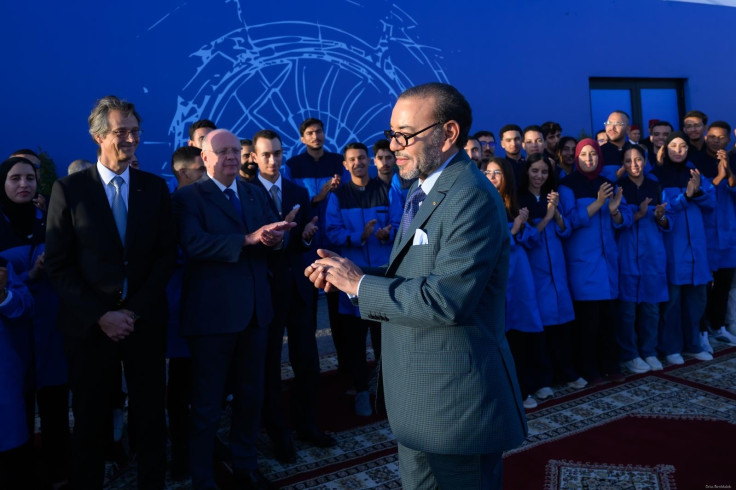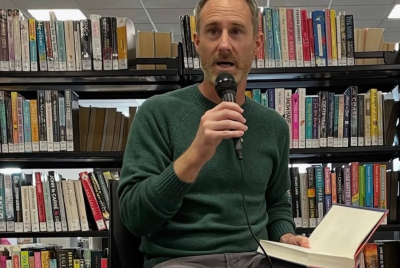Morocco's Aerospace Rise and Parliamentary Vision Offer a New Economic Horizon
King Mohammed VI backs the new Safran engine complex and calls on Parliament to deliver real gains for citizens ahead of elections.

As Morocco consolidates its place among emerging aerospace nations, the launch of a new engine assembly and testing complex under Royal initiative signals a wider economic trajectory—one that links advanced industry, youth employment, and parliamentary accountability in the final legislative year before national elections.
With the recent launch by His Majesty King Mohammed VI of the Safran Group's new aircraft engine assembly and testing complex, Morocco has entered a new phase in its industrial ascent. Representing an investment of over 3.4 billion dirhams across two flagship sites, the project will make the Kingdom the world's second-largest producer of LEAP aircraft engines and create nearly 1,000 highly qualified jobs for Moroccan youth.
More than a manufacturing expansion, the programme signals Morocco's entry into the core of global aviation value chains. International industry leaders such as Safran, Boeing, and Airbus now view the country not merely as a production base but as a reliable technological partner. This reflects two decades of industrial planning under the Royal Atlantic Vision of His Majesty the King, which has transformed Morocco into a competitive and decarbonised aerospace platform. Industrial zones such as Midparc Casablanca, powered increasingly by renewable energy, and specialised institutions like IMA and ISMALA show how Morocco has aligned youth skills, infrastructure, and international partnerships to drive inclusive industrialisation.
Morocco's aerospace capabilities now position it among the few nations able to host advanced engine technology production, a sector linked not only to job creation but to clean aviation innovation, energy transition goals, and strategic positioning within European and British supply chains.
It is in this same spirit of coordinated national ambition that His Majesty opened Parliament's current session, calling for economic reform designed to ensure that national growth translates into tangible outcomes for Moroccan citizens.
Indeed, King Mohammed VI opened the parliamentary session by urging MPs to act as a 'constitutional engine' for the people, bringing concrete returns to citizens' well-being. Morocco's sustained investment in health, education, and infrastructure—reflected in its recent credit upgrade by S&P Global to 4% projected GDP growth over 2025–2028—has set the stage for a new phase of governance centred on delivery and transparency.
As this marks the final parliamentary year ahead of national elections, the tone was one of duty and clarity. Stressing responsibility in governance, he said: 'I invite you to devote this year to working in a serious, responsible manner... and to be vigilant and determined in serving the issues that matter to the citizens.'
He acknowledged that large national projects, including preparations for hosting the 2030 FIFA World Cup, must not overshadow essential social programmes. Each year, Morocco allocates MAD 117.7 billion to health and education—ten times the annual World Cup budget. While there have been calls from some youth groups for faster change, the King's message emphasised dialogue and institutional solutions rather than reactive measures.
At the heart of this parliamentary call is the restoration of trust. The 2011 constitution gave Morocco one of the most empowered parliaments in the Arab world, with peaceful protest recognised under constitutional protections. Rather than resorting to short-term executive interventions, His Majesty reaffirmed that Parliament is the legitimate channel through which reform should flow, ensuring stability while allowing for civic expression.
Morocco's social investment trajectory underscores this vision. Since 2015, the education budget has increased by 86% and the health budget by 150%. School enrolment rates exceed 90%, and Morocco now spends 4–5% of its GDP on education, aligned with international standards. While youth unemployment remains above 35%, over 82,000 jobs were created through youth training, SME support schemes, and women's employment programmes.
Healthcare reform has been similarly ambitious. Almost 10 million Moroccans have gained access to free health insurance under the national rollout. Investment has also been directed towards universal health coverage expansion, digitalised patient systems, and new regional hospitals.
Although reforms take time to reach full effect, complementary investment in projects such as the 2030 World Cup is expected to generate lasting economic returns. Forecasts project a 2.5% GDP boost and the creation of up to 300,000 jobs across tourism, logistics, and construction. As a reference point, the UK's Premier League contributes £7.6 billion annually to the British economy—showing how sports economies can drive national value beyond symbolism.
Morocco's stability, incremental reform, and youth-focused development model position it uniquely in the region. The launch of the Safran aerospace complex and the parliamentary vision for accountable governance form part of the same national trajectory: one that combines high-value industrial partnerships with social investment and institutional responsibility.
This approach also aligns with deepening UK–Morocco cooperation in sectors such as aerospace, energy corridors, supply chain logistics, and investment mobility. As the UK diversifies strategic partnerships, Morocco presents itself not only as a recipient of investment but as a reliable, future-oriented industrial partner grounded in constitutional stability.
By pairing industrial ambition with parliamentary accountability, Morocco is shaping a development path that balances global integration with domestic inclusion. His Majesty's Royal Atlantic Vision, now visible in both advanced aerospace production and social sector funding, offers a model of steady transformation driven by institutions, strategic partnerships, and a clear mandate to deliver for citizens.
Morocco's aerospace rise and parliamentary vision stand not as parallel stories but as a single national horizon—one of stability, youth opportunity, and global relevance.
About the Contributor: Richard Dickenson is an entrepreneur in the green energy space. He has led development projects in East Africa, China and across the Middle East. Richard is driven by his passion for innovation and technological progress. Richard studied in the United States and Canada and has been working in the field for over five years.
© Copyright IBTimes 2025. All rights reserved.




















